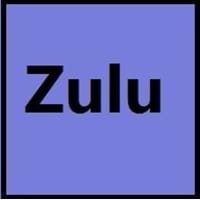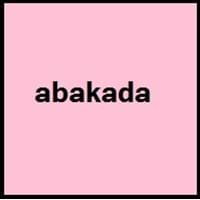Zulu vs Tagalog
Countries
South Africa
Philippines
National Language
South Africa
Philippines
Second Language
Botswana, Lesotho, Malawi, Mozambique, Swaziland, Zimbabwe
Filipinos
Speaking Continents
Africa
Asia, Australia
Minority Language
Not spoken in any of the countries
Australia, Canada, Guam, Hong Kong, New Zealand, Singapore, United Kingdom
Regulated By
Pan South African Language Board
Komisyon sa Wikang Filipino, National Languages Committee
Interesting Facts
- The meaning of word "Zulu" means "Sky"and Zulu was the name of the ancestor who founded the Zulu royal line in about 1670.
- Zulu language has many loanwords borrowed from Afrikaans and English Languages.
- In 1593, "Doctrina Christiana" was first book written in two versions of Tagalog.
- The name "Tagalog" means "native to" and "river". "Tagalog"is derived from taga ilog, which means "inhabitants of the river".
Similar To
Xhosa Language
Filipino, Cebuano and Spanish Languages
Derived From
Not Available
Not Available
Alphabets in
Zulu-Alphabets.jpg#200
Tagalog-Alphabets.jpg#200
Writing Direction
Not Available
Left-To-Right, Horizontal
Thank You
Ngiyabonga
Salamat po
How Are You?
unjani
Kamusta ka na?
Good Night
okuhle ebusuku
Magandang gabi
Good Evening
okuhle kusihlwa
Magandang gabi po
Good Afternoon
okuhle ntambama
Magandang hapon po
Good Morning
okuhle ekuseni
Magandang umaga po
Please
Ngiyacela
pakiusap
Sorry
Ngiyaxolisa
pinagsisisihan
I Love You
Ngiyakuthanda wena
Iniibig kita
Excuse Me
Uxolo
Ipagpaumanhin ninyo ako
Dialect 1
Qwabe
Batangas Tagalog
Where They Speak
Gabon, South Africa
Batangas, Gabon
Dialect 2
central KwaZulu-Natal Zulu
Bisalog
Where They Speak
Georgia, South Africa
Philippines
Dialect 3
Ndebele
Filipino
Where They Speak
Zimbabwe
Philippines
How Many People Speak
Not Available
Native Name
isiZulu
Tagalog
Alternative Names
Isizulu, Zunda
Filipino, Pilipino
French Name
zoulou
tagalog
German Name
Zulu-Sprache
Tagalog
Pronunciation
Not Available
[tɐˈɡaːloɡ]
Ethnicity
Zulu people
Tagalog people
Language Family
Niger-Congo Family
Austronesian Family
Subgroup
Benue-Congo
Indonesian
Branch
Beatu
Not Available
Early Forms
urban Zulu
Proto-Philippine, Old Tagalog, Classical Tagalog, Tagalog
Standard Forms
Deep Zulu
Filipino
Signed Forms
Not Available
Not Available
Scope
Individual
Individual
ISO 639 6
Not Available
Not Available
Glottocode
zulu1248
taga1269
Linguasphere
99-AUT-fg
31-CKA
Language Type
Living
Living
Language Linguistic Typology
Subject-Verb-Object
Object-Verb-Subject, Subject-Verb-Object, Verb-Object-Subject, Verb-Subject-Object
Language Morphological Typology
Not Available
Not Available
Zulu and Tagalog Language History
Comparison of Zulu vs Tagalog language history gives us differences between origin of Zulu and Tagalog language. History of Zulu language states that this language originated in 19 whereas history of Tagalog language states that this language originated in 1593. Family of the language also forms a part of history of that language. More on language families of these languages can be found out on Zulu and Tagalog Language History.
Zulu and Tagalog Greetings
People around the world use different languages to interact with each other. Even if we cannot communicate fluently in any language, it will always be beneficial to know about some of the common greetings or phrases from that language. This is where Zulu and Tagalog greetings helps you to understand basic phrases in Zulu and Tagalog language. Zulu word for "Hello" is Sawubona or Tagalog word for "Thank You" is Salamat po. Find more of such common Zulu Greetings and Tagalog Greetings. These greetings will help you to be more confident when conversing with natives that speak these languages.
Zulu vs Tagalog Difficulty
The Zulu vs Tagalog difficulty level basically depends on the number of Zulu Alphabets and Tagalog Alphabets. Also the number of vowels and consonants in the language plays an important role in deciding the difficulty level of that language. The important points to be considered when we compare Zulu and Tagalog are the origin, speaking countries, language family, different greetings, speaking population of these languages. Want to know in Zulu and Tagalog, which language is harder to learn? Time required to learn Zulu is 44 weeks while to learn Tagalog time required is 44 weeks.





